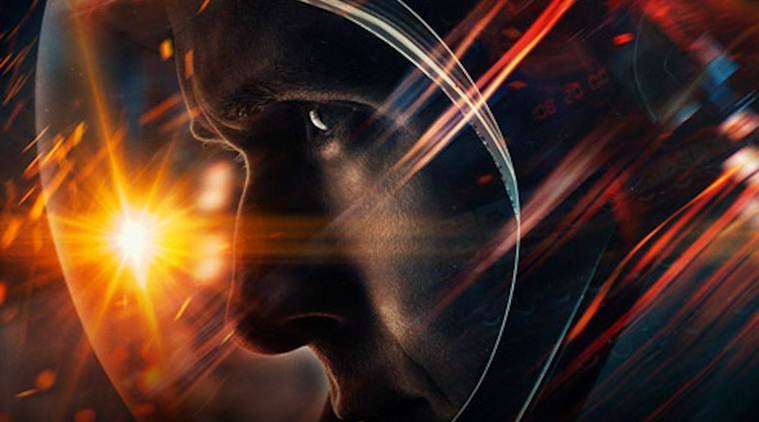 First Man movie review: In First Man, space is not about the beautiful unknown of Gravity.
First Man movie review: In First Man, space is not about the beautiful unknown of Gravity.
First Man movie director: Damien Chazelle
First Man movie cast: Ryan Gosling, Claire Foy, Jason Clarke, Kyle Chandler, Corey Stoll
First Man movie director: 3.5 stars
Damien Chazelle’s First Man is a delicate dance — often literally played to music — between man and mankind, small steps and giant leaps, rockets and space shuttles, ambition and fear, dad and mom, wife and husband, Earth and moon, and, in what he insistently attempts, human and astronaut.
That human, Neil Armstrong, wasn’t the astronaut the world expects. Not good with big hellos or small goodbyes, his eyes more on the tragedies of recent past than the burden of history he is set to bear, quieter as the countdown nears to the big day. What would he think of the controversy over the film not showing the planting of the American flag on lunar soil? He probably would shrug.
But Chazelle, that Hollywood whizkid so tuned into emotions that belong more to today — from bullying (Whiplash) to artistic purity vs commercialism (La La Land) — will have none of it. So his Neil is not just the nerdy scientist Armstrong saw himself as, but also a grieving father who keeps seeing his two-year-old girl who died of cancer. If Armstrong once told an interviewer, perhaps a little irritated, that no, he never gazed upon the moon that way while growing up, the disc of silver is never out of Chazelle’s frame in every moment of consequence in First Man.
It’s Gosling himself whom Armstrong may have approved of. Required to play the low-key astronaut through the highs but, more importantly, the lows leading up to the landing on the moon, he tamps down remarkably. Gosling also efficiently navigates the various roles expected of him, as the loving but negligent father and husband who is guilt-ridden for being away for days on end, the reluctant hero called upon to keep a cool head through emergencies, the engineer who may be more interested in numbers than the romanticism of moon, and the friend who grieves and nurtures his fears in private.
As his wife Janet, Foy (The Crown) is a suitable foil, but with little more than to do than keep the household running and wait patiently for him. Chazelle has several women performing that role, for their astronaut husbands who form a clique of their own, and who discuss “more important things” over beer sitting out in the porch. Janet gets to speak her mind twice in all, and one little speech about NASA men being “a bunch of boys who know nothing” sounds trite.
However, those little family do’s are part of Chazelle’s portrait of the toll the moon voyage took back on Earth, in the lives that were lost, the families that were frayed, and the masks that had to be put on as America, playing catch-up in the space race, looked desperately for heroes. There is some talk thrown in about politicians daring to question the cost of it all, but just stray stuff. More often, Chazelle goes up close into the cockpit as the astronauts blast off or return, the torture their bodies must undergo in the violently shaking vessels portrayed in lengthy detail. When accidents happen, they are fatal, and the film breaks the news bluntly.
In First Man, space is not about the beautiful unknown of Gravity. And it’s hardly ever quiet out there. Chazelle is more focused looking within than out. That can be disappointing, as we wait and wait for the magic, the exhilaration to be turned on.
And just like that, towards the end, Chazelle steps up the tension, the moon finally appears — the fine grey powder stretching into the dark distance — and as, for the first time, man glances down on a surface that millennia before have only looked up to see, all you can do is hold your breath.


